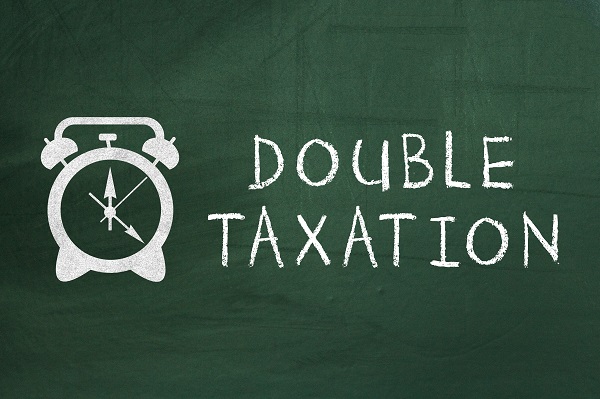Compliance Audits in Nigeria
Compliance Audits in Nigeria
Compliance audits are critical for businesses operating in Nigeria. They ensure that organizations adhere to relevant laws, regulations, and standards, protecting both the business and its stakeholders from legal, financial, and reputational risks. In Nigeria, where the regulatory landscape can be complex and constantly evolving, compliance audits are essential for maintaining smooth operations and fostering trust with regulators, investors, and the public.
What is a Compliance Audit?
A compliance audit is a comprehensive evaluation of a company’s adherence to external regulations, laws, and internal policies. These audits focus on ensuring that the business is following the legal and regulatory requirements governing its industry.
In Nigeria, compliance audits typically focus on areas such as tax laws, financial reporting standards, labor regulations, and environmental protection policies. By conducting regular compliance audits, businesses can identify gaps in their processes and take proactive measures to address them.
Importance of Compliance Audits in Nigeria
- Mitigating Legal and Financial Risks
One of the primary reasons for conducting a compliance audit is to mitigate legal and financial risks. Non-compliance with Nigerian laws, such as tax obligations or labor laws, can result in fines, penalties, and even legal actions. A compliance audit helps identify areas where the business may be at risk and suggests corrective measures to ensure full compliance. - Maintaining Good Relations with Regulatory Authorities
Nigerian businesses are governed by numerous regulatory bodies, including the Federal Inland Revenue Service (FIRS), the National Environmental Standards and Regulations Enforcement Agency (NESREA), and the Nigerian Financial Reporting Council (FRC). Regular audits demonstrate to regulators that a business is committed to following the law, which can enhance its credibility and reduce scrutiny from authorities. - Building Investor Confidence
Investors prefer businesses that operate transparently and within the bounds of the law. A clean compliance record helps build investor confidence and assures them that their investments are secure from potential legal and financial issues. A compliance audit can highlight the business’s commitment to corporate governance and ethical practices. - Protecting Business Reputation
In today’s interconnected world, a company’s reputation is invaluable. Any regulatory breach can tarnish a business’s image, resulting in the loss of customers, partners, or employees. By identifying compliance risks early through an audit, businesses can take necessary steps to avoid such breaches and protect their reputation.
Types of Compliance Audits in Nigeria
Compliance audits can be classified into different types depending on the focus area of the audit. Below are the common types of compliance audits in Nigeria:
- Tax Compliance Audits
- Focus: Ensures that businesses comply with Nigeria’s tax laws, including Value Added Tax (VAT), Corporate Income Tax (CIT), Withholding Tax (WHT), and other levies.
- Purpose: Verifies that businesses are correctly calculating, reporting, and remitting taxes to the Federal Inland Revenue Service (FIRS) and other relevant authorities.
- Example: An audit to verify whether a business has filed its tax returns and paid the correct amount of taxes due to FIRS.
- Financial Compliance Audits
- Focus: Ensures compliance with International Financial Reporting Standards (IFRS), Generally Accepted Accounting Principles (GAAP), and other financial reporting standards.
- Purpose: Assesses whether a company’s financial statements are prepared accurately, transparently, and in accordance with the prescribed accounting standards.
- Example: An audit to ensure that a company’s financial statements align with IFRS requirements and disclose the true financial position of the company.
- Labor and Employment Compliance Audits
- Focus: Ensures compliance with Nigeria’s Labor Act, employment contracts, and employee benefits laws.
- Purpose: Verifies whether a company is adhering to labor laws, including minimum wage regulations, employee contracts, working hours, health and safety requirements, and the payment of social security contributions.
- Example: An audit to determine if a business is paying employees the mandated minimum wage and providing all legally required benefits such as leave and retirement contributions.
- Environmental Compliance Audits
- Focus: Assesses adherence to Nigeria’s environmental laws, such as waste disposal regulations, emission standards, and protection of natural resources.
- Purpose: Evaluates whether businesses are following environmental regulations imposed by agencies like the National Environmental Standards and Regulations Enforcement Agency (NESREA) and local government environmental laws.
- Example: An audit to confirm whether a manufacturing company is properly disposing of hazardous waste and meeting emission standards set by NESREA.
- Health and Safety Compliance Audits
- Focus: Ensures that a business is in compliance with occupational health and safety standards.
- Purpose: Reviews whether a company is providing a safe work environment and adhering to Nigeria’s health and safety regulations, which cover areas such as worker safety, protective equipment, workplace ergonomics, and emergency preparedness.
- Example: An audit to ensure that a construction company follows the Nigerian Occupational Health and Safety Act to protect its workers from hazardous conditions.
- Anti-Money Laundering (AML) Compliance Audits
- Focus: Ensures compliance with anti-money laundering laws and regulations in Nigeria, including the Nigerian Financial Intelligence Unit (NFIU) and other international standards.
- Purpose: Verifies whether businesses, particularly in the financial and banking sectors, are complying with AML regulations and are taking the necessary steps to prevent money laundering activities.
- Example: An audit to check whether a bank has adequate processes to detect and report suspicious financial transactions as required by Nigerian and international AML regulations.
- Corporate Governance Compliance Audits
- Focus: Ensures that a company is adhering to best practices in corporate governance, especially in publicly listed companies or companies with significant investors.
- Purpose: Reviews the structure and effectiveness of a company’s board of directors, executive management, financial reporting, and shareholder communications to ensure transparency and fairness in its operations.
- Example: An audit to assess whether a publicly-listed Nigerian company is following the Nigerian Code of Corporate Governance and whether its board of directors is operating in the best interests of shareholders.
- Product and Service Compliance Audits
- Focus: Verifies that products and services meet specific regulatory standards.
- Purpose: Ensures that the products manufactured or sold by a business comply with the standards set by Nigerian regulatory bodies, including the Standards Organization of Nigeria (SON) and the National Agency for Food and Drug Administration and Control (NAFDAC).
- Example: An audit to confirm that a food and beverage company is following health regulations and that its products are registered with NAFDAC.
- Data Protection and Privacy Compliance Audits
- Focus: Ensures that businesses comply with Nigeria’s Data Protection Regulations, especially with regard to the collection, storage, and use of personal data.
- Purpose: Verifies that businesses are in line with the Nigeria Data Protection Regulation (NDPR) and are implementing data security measures to safeguard the privacy of their customers and employees.
- Example: An audit to check whether a business is protecting customer data in accordance with the NDPR and ensuring that customers’ personal information is not misused or exposed.
The Process of Conducting a Compliance Audit
- Planning:
The first step is to define the scope and objectives of the audit, identifying relevant laws, regulations, and policies. - Data Collection and Analysis:
Auditors collect data through interviews, document reviews, and site visits, analyzing the business’s processes, financial records, and contracts. - Identification of Gaps:
Auditors identify areas where the business is not in full compliance with applicable regulations. - Recommendations for Improvement:
Based on their findings, auditors provide a report with corrective measures to address non-compliance issues. - Implementation and Follow-up:
The business takes corrective actions, and auditors follow up to ensure that these changes are properly implemented.
Challenges in Compliance Audits in Nigeria
- Complexity of Regulations:
Keeping up with frequent changes in tax laws, labor regulations, and environmental standards can be challenging, especially for businesses operating across multiple sectors. - Lack of Awareness:
Many businesses, especially small and medium-sized enterprises (SMEs), may not be fully aware of the compliance requirements they need to follow. - Limited Resources:
Smaller businesses may struggle to allocate resources for regular compliance audits, leading to oversight of crucial regulatory requirements.
Conclusion
Compliance audits are crucial for businesses operating in Nigeria. They help ensure adherence to local laws, enhance corporate governance, and protect businesses from potential legal and financial penalties. By embracing regular compliance audits, Nigerian businesses can foster transparency, mitigate risks, and build a reputation for integrity and accountability.
For any Nigerian business looking to avoid legal risks and operate with integrity, investing in compliance audits is a smart and essential practice.
Contact Us for more information on compliance audits in Nigeria, kindly click to contact us SOW Professional Services Ltd :
E-mail: care@sowprofessional.com
Website: www.sowprofessional.com
Phone: 07038254989
Whatsapp: 07038254989




